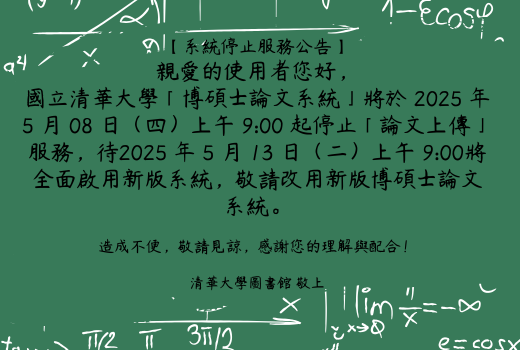|
參考文獻
壹、中文文獻
王亞德(2015)。專權領導、尚嚴領導對組織信任影響之研究。科技與人力教育季刊, 2(2),30-45。
王娜玲(2009)。台北市國小校長領導行為與教師組織公民行為之研究。台北市立教育大學學報,40(1),119-156。
王湧泉、林明勳(2014)。中小企業主管領導型態、組織信任與員工留任意願關係之研究。高雄應用科技大學學報,43,191-208。
余明仁、張訓譯(2018)。淺談組織信任對學校運作的影響。台灣教育評論月刊,7(10),238-245。
余惠瑄(2019)。國小校長正向領導、教師組織公民行為與學校效能之關係。學校行政,122,37-66。
吳明隆、涂金堂(2012)。 SPSS與統計應用分析(二版)。臺北市:五南。
吳勁甫(2015)。國小校長正向領導對學校效能影響之研究:教師心理資本的多層次中介效果。教育與心理研究,38(3),1-36。
吳勁甫(2018)。校長正向領導、教師組織公民行為與學校效能關係之後設分析。教育科學期刊,17(2),1 – 31。
吳政達、湯家偉、羅清水 (2007)。心理契約、組織公平、組織信任與組織公民行為結構關係之驗證:以台北地區國民中學學校組織為例。教育政策論壇,10(1),133-159。
吳清山(2013)。正向領導。教育研究月刊,230,136-137。
吳清山、林天祐(2007)。組織公民行為。教育研究月刊,162,134-134。
李佳穎、鄭淵全(2012)。國民小學校長多元領導策略與教師組織公民行為之研究。學校行政,82,90-110。
李貞儀(2011)。國民小學校長變革領導、教師組織信任、教師組織公民行為與學校效能關係之研究(未出版博士論文)。國立中正大學,嘉義縣。
林新發(2009)。學校轉型與校長轉型領導。國民教育,49(4),1-8。
林新發(2010)。正向領導的意涵與實施策略。國民教育,50(3),1-5。
林鉦棽、陳心怡(2006)。組織公正對動機與信任及組織公民行為之影響。亞太經濟管理評論,9(2),23-41。
林鉦棽、蕭淑月、何慧清(2005)。社會交換理論觀點上之組織支持、組織知識分享行為與組織公民行為相關因素之研究:以信任與關係為分析切入點。人力資源管理學報,5(1),77-110。
姚麗英(2018)。高中校長正向領導與教師創新教學關係之研究。學校行政,114,109 - 134。
張同廟、吳明隆 (2015) 。大學學生事務人員是組織的好戰士或是好演員?-探討正向領導、信任對組織公民行為之影響。高雄師大學報,39,1-24。
許道然(2002)。組織公民行爲之研究。空大行政學報,12,113-145。
許道然(2003)。公部門組織信任與組織公民行為關係之研究。空大行政學報,13,3-36。
郭維哲、方聰安(2006)。學校組織公平對教師組織公民行為影響之研究—以信任及承諾為中介變項。教育經營與管理研究集刊,2,145-179。
陳至柔、吳如娟、吳有諒(2014),授權賦能與組織信任對服務導向組織公民行為影響之研究-以公立社福機構為例,服務業管理評論,12,40-66。
陳春希、高瑞斯(2010)。警專學生的工作價值觀與服務導向組織公民行為—組織信任的中介效果。當代教育研究季刊,18(4),211-255。
陳國雄、顏瑞美、黃建榮(2010)。心理契約違反、組織信任與組織公民行為之關係——以南部區域醫院為例。新生學報,6,65-86。
陳詠禎(2016)。校長正向領導對學校教育品質的啟示。教育行政論壇,8(1),115-132。
童惠玲、曾妤珮(2011)。知覺組織支持與服務導向組織公民行為:高績效人力資源實務跨層次之調節效果。台灣勞動評論,3(1),117-146。
馮丰儀、楊宜婷(2015)。我國國民小學校長真誠領導與教師信任關係之研究。臺北市立大學學報,46(2),1-33。
黃柏勳(2003)。教師組織公民行為的意涵及其成因分析。學校行政,27,63-79。
黃賀、蘇英芳(2005)。我國銀行業人際信任度之研究。人力資源管理學報,5(3),1- 20。
楊雅鈞(2012)。教師組織公民行為對正向心理學之啟示-從利他行為的觀點談起。學校行政,78,69-78。
楊慶麟(2019)。國民小學校長完全領導、分布式領導、教師組織公民行為與教師創新教學關係之研究。學校行政,119,1-30。
劉宗翰(2013)。高雄市國民中學教師組織信任與教師專業發展評鑑參與意願關係之研究,教育研究論壇,4(2),265-288
蔡秀涓(2004)。公務人員組織信任模型之建構:以臺北市政府為例。人文及社會科學集刊,16(2),241-279。
蔡嘉閔(2015)。國民中學校長道德領導、學校組織信任與教師組織公民行為關係之研究(未出版之碩士論文)。國立新竹教育大學,新竹市。
蕭文智(2015),校長正向領導對學生創新表現影響之研究-以教師組織公民行為為中介變項。學校行政,97,1-21。
賴協志、吳清山(2016)。高級中等學校校長正向領導量表之發展與運用。教育與心理研究,39(4),29-59。
謝傳崇(2012)。校長正向領導:理念、研究與實踐。臺北市:高等教育。
謝傳崇(2014)。國民小學校長正向領導對教師學術樂觀影響之研究-以學校創新文化為中介變項。學校行政,91,33-56。
謝傳崇(2015)。正向領導力。臺北市:遠流。
謝傳崇、王瓊滿(2011)。國民小學校長分佈式領導、教師組織公民行為對學生學習表現影響之研究。新竹教育大學教育學報,28(1),35-66。
謝傳崇、吳麗珠(2016)。國小教師知覺校長情緒勞務與歸屬感關係之研究-以組織信任為中介變項。教育理論與實踐學刊,34,57-89。
謝傳崇、許文薇(2014)。國民小學校長正向領導、肯定式探詢與教師希望感關係之研究。教育研究學報 48(1),67-86。
謝傳崇、楊絮捷(2013)。國民小學校長情緒智慧領導能力、教師組織公民行為與組織創新氣氛關係之研究。教育政策論壇,16(4),99-133。
謝豐宇、賴志峰(2012)。國中校長服務領導、教師組織公民行為與教師教學效能關係之研究。學校行政,82,47-69。
鍾雲英(2018)。臺灣地區中小學校長正向領導之實踐作為,中等教育,69(3),8-26。
貳、英文文獻
Bateman, T. S., & Organ, D. W. (1983). Job satisfaction and the good soldier: The relationship between affect and employee citizenship. Academy of Management Journal, 26, 587-595.
Bryk, A. S., & Schneider, B. (2002). Trust in schools: A core resource for improvement. New York, NY: Russell Sage Foundation.
Cameron, K. S. (2008). Positive leadership: Strategies for extraordinary performance. San Francisco, CA: Berrett- Koehler.
Cameron, K. S. (2013). Practicing positive leadership: Tools and techniques that create extraordinary results. San Francisco, CA: Berrett- Koehler.
Costigan, R. D., Iiter, S. S., & Berman, J. J. (1998). A multi-dimensional study of trust in organizations. Journal of managerial issues, 10(3), 303-317.
Coleman, V. I., & Borman, W. C. (2000). Investigating the underlying structure of the citizenship performance domain. Human resource Management review, 10(1), 25-44.
DiPaola, M. F., & Hoy, W. K. (2005). Organizational citizenship of faculty and achievement of high school students. High School Journal, 88(3), 35-44.
Dutton, J. E., & Spreitzer, G. M. (Eds.). (2014). How to be a positive leader: Small actions, Big impact. San Francisco, CA: Berrett- Koehler.
Katz, D. (1964). The motivational basis of organizational behavior, Behavioral Science, 9, 131-133.
Kars, M., & Inandi, Y. (2018). Relationship between school principals' leadership behaviors andteachers' organizational trust. Eurasian Journal of Educational Research, 74, 145-164.
Konovsky, M. A. & Pugh, S. D. (1994). Citizenship behavior and social exchange. Academy of Management Journal, 37(3), 656-669.
Linden, R. C., & Maslyn, J. M. (1998). Multidimensionality of leader-member exchange: An empirical assessment through scale development. Journal of Management, 24(1), 43-72.
Luthans, F., Luthans, K.W., Hodgetts, R. M., & Luthans, B.C. (2001). Positive approach to leadership (PAL) implications for today’s organizations. Journal of Leadership and Oranizational Studies, 8(2), 3-20.
Luhmann, N. (1979). Trust and power. New York, NY: John Wiley.
Ismail, H. (2014). Organizational justice and citizenship behavior, the mediating role of trust. International Journal of Human Resource Studies, 5(1), 86-96.
Mayer, R. C., Davis, J. H. & Schoorman, F. D. (1995). An integrative model of organizational trust. Academy of Management Review, 20(3), 709-734.
McKenzie, S. G. (2011). Trust and organizational citizenship: a study of the relationship of the three referents of trust and the organizational citizenship of elementary school teachers. Unpublished master thesis. The University of Texas at San Antonio
McAllister, D. J. (1995). Affect-and cognition-based trust as foundations for interpersonal cooperation in organizations. Academy of Management Journal, 38(1), 24-59.
McCauley, D. P., & Kuhnert, K. W. (1992). A theoretical review and empirical investigation of employee trust in management. Public Administration Quarterly, 16(2), 265-284.
Nyhan, R. C. (2000). Changing the paradigm: Trust and its role in public sector organizations. American Review of Public Administration, 30(1), 87-109.
Organ, D. W. (1988). Organizational citizenship behavior: The good soldier syndrome. Lexington, MA:Lexington Books.
Podsakoff, P. M., MacKenzie, S. B., Paine, J. B., & Bachrach, D. G. (2000). Organizational citizenship behaviors: A critical review of the theoretical and empirical literature and suggestions for future research. Journal of Management, 26(3), 513-564.
Robinson, S. L., & Morrison, E. W. (1995). Psychological contracts and OCB: The effect of unfulfilled obligations on civic virtue behavior. Journal of Organizational Behavior, 16(3), 289-298.
Seligman, M. E. P., &; Csikszentmihalyi, M. (2000). Positive psychology: An introduction. American Psychologist, 55, 5-14.
Smith, C. A., Organ, D. W., & Near, J. P. (1983). Organizational citizenship behavior: Its nature and antecedents. Journal of Applied Psychology, 68(4), 653-663.
Terzi, A. R., & Derin, R. (2015). Primary school teachers’ views on the relation between organizational commitment and organizational citizenship behavior. International Journal of Academic Research in Business and Social Sciences, 1(5), 45-55.
Tombaugh, J. R. (2005). Positive leadership yields performance and profitability: Effective organizations develop their strengths. Development and Learning in Organizations, 19(3), 15-17.
Williams, L. J., & Anderson, S. E. (1991). Job satisfaction and organizational commitment as predictors of organizational citizenship and in-role behaviors. Journal of Management, 17(3), 601-617.
Van Dyne, L., Graham, J.W., & Dienesch, R.M. (1994). Organizational citizenship behavior: Construct redefinition, measurement, and validation. Academy of Management Journal, 37(4), 765-802.
Xu, Z., Tu, C.C (2019). Effects of principal’s positive leadership on job insecurity and school effectiveness in china. Eueasia Journal of Mathematics, Science and Technology Education, 15(11),1-11.
Zeinabadi, H., & Salehi, K. (2011). Role of procedural justice, Trust, job satisfaction and organizational commitment in organizational citizenship behavior (OCB) of teachers: proposing a modified social exchange model. Procedia-Social and Behavioral Sciences, 29, 1472-1481.
Zucker, L.G. (1986) The Production of Trust: Institutional sources of economic structure, 1840-1920. Research in Organizational Behavior, 8, 53-111.
Zbierowski, P. (2016). Positive leadership– attempt to clarification and assessment of novelty. Journal of Positive Management,7(4), 61-70.
|
